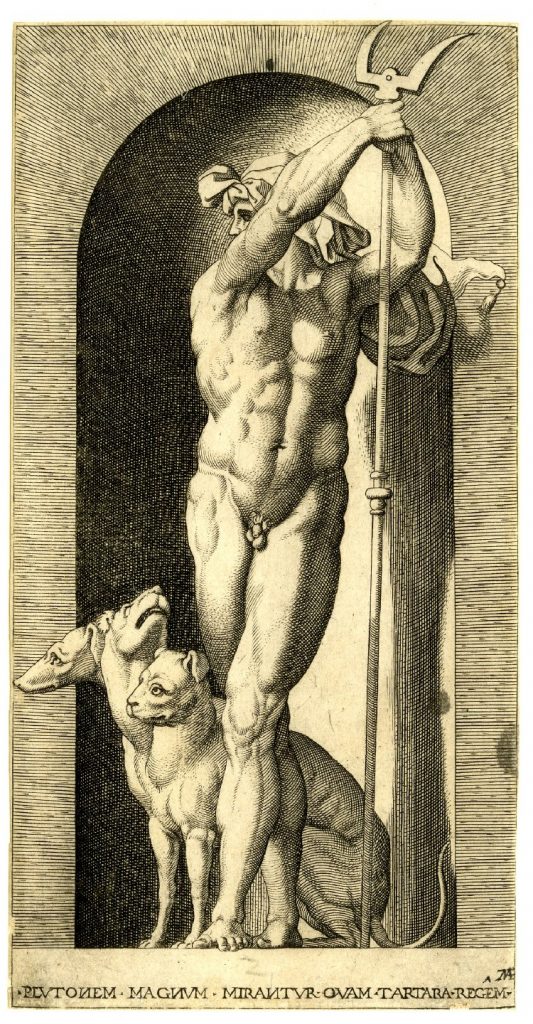More often than not, ancient Greek mythology (religion) served to explain a series of legends. Different from modern religions such as Christianity, Judaism, or Islam, ancient Greek religion was an anthropomorphic polytheism, meaning that ancient Greeks believed in a multitude of individual divine figures that took on human forms and emotions.1 Furthermore, ancient Greek mythology lacked much of the asceticism and mystical enthusiasm that is more commonly seen in modern religions. Most of the highly developed anthropomorphic and comparative rationalism of the ancient Greek religious thought can be accredited to Homer with the aid of his Iliad and Odyssey.2
The people of the ancient Greek civilization were often in a state of weakness under the power of nature; therefore, they relied heavily on the divine individuals of Olympus. Why? They believed that the forces of nature were under the control of their gods. In short, the relationship between humans and divine beings was that of a retribution justice.3 If humans did anything to offend the gods, then those gods would strike back in some sort of fashion to restore justice.4 Therefore, humans were constantly looking to please the gods in fear of their wrath.
Out of the ancient Greek mythology came the god of the dead and the underworld, Hades. Hades had five other siblings: Zeus, Poseidon, Demeter, Hera, and Hestia, and they were all children of Cronus and Rhea.5 After defeating their parents (the Titans), Hades drew lots with Zeus and Poseidon to gain their respective domains. Hades was commonly thought to be a cold god, but he was never considered to be an evil divine figure. Furthermore, it is important to note that his realm, the underworld, should not be associated with the hell of Christianity.6 However, Hades was for the most part feared by all. Another name for the ancient Greek god was Ploutos and later adopted by the Romans as Pluto.7

The god of the underworld was the husband of Persephone (Zeus’s and Demeter’s daughter). Although she was Hades’ wife, she only lived with him during the winter time.8 Persephone was the divine goddess of agriculture and fertility. Therefore, the ancient Greeks accredited the change in nature (winter) to Persephone moving to the underworld. Persephone was unable to stay with Hades at all times due to interference from her mother Demeter. Zeus, however, was okay with the marriage of Hades and Persephone. Therefore, in order to set up the marriage, Zeus had to trick Persephone, so she could be abducted by Hades.9 However, Demeter interfered, and that is why Persephone spends half of the year with Demeter and the other half with Hades.
Furthermore, it is important to note the Greek perspective of the afterlife. Perspectives about the afterlife varied from each other based on their region in Greece as well as their time period in Greek history. The consensus was that the underworld was neither heaven nor hell.10 The sense that exists within Christianity, for example, was not present during the time of the ancient Greeks. Although Tartarus was present as a location within the underworld, the Greeks would not compare it to the equivalent of Christian hell. The way the Greeks saw it, the underworld was a place that everyone ended up after death.11 However, there were a few, including the philosopher Epicurus, that believed that the underworld did not exist at all. He believed that when the body died, the soul died with the body as well.12 A good portion of Greeks refused to believe such a pessimistic perspective of the afterlife. However, even the Greek traditional perspective of the underworld was not as popular despite many Greeks believing in it.
- Funk & Wagnalls New World Encyclopedia, 2016 s.v., “Greek Religion and Mythology.” ↵
- Funk & Wagnalls New World Encyclopedia, 2016 s.v., “Greek Religion and Mythology.” ↵
- Funk & Wagnalls New World Encyclopedia, 2016 s.v., “Greek Religion and Mythology.” ↵
- Funk & Wagnalls New World Encyclopedia, 2016 s.v., “Greek Religion and Mythology.” ↵
- Salem Press Encyclopedia, January, 2015, “Hades (deity),” by Joseph, Michael, DMin. ↵
- Salem Press Encyclopedia, January, 2015, “Hades (deity),” by Joseph, Michael, DMin. ↵
- Salem Press Encyclopedia, January, 2015, “Hades (deity),” by Joseph, Michael, DMin. ↵
- Salem Press Encyclopedia, January, 2015, “Hades (deity),” by Joseph, Michael, DMin. ↵
- Salem Press Encyclopedia, January, 2015, “Hades (deity),” by Joseph, Michael, DMin. ↵
- The Greenhaven Encyclopedia of Ancient Greece, 2007, s.v. “Underworld,” by Robert B. Kebric. ↵
- The Greenhaven Encyclopedia of Ancient Greece, 2007, s.v. “Underworld,” by Robert B. Kebric. ↵
- The Greenhaven Encyclopedia of Ancient Greece, 2007, s.v. “Underworld,” by Robert B. Kebric. ↵



186 comments
Dylan Sanchez
Greek mythology has always sparked my interest but I have never bothered to dwell into the history because it all seemed rather confusing. It’s quite nice to hear about some very specific and odd things about the gods that you don’t often see with other religions. The gods in greek mythology act more like people who wish to sort of play with the greeks rather than righteous just gods in many other religions. I always assumed that Hades was an evil god but it seems to be he is not. Good read.
Luis Magana
Greek mythology has always grabbed my attention a lot and I actually read the Percy Jackson books. Hades always seemed to grab my attention the most because he was seen as evil and extremely powerful. Hades, the ruler of the underworld, or also known as Pluto has many misconceptions. He was never supposed to be seen as evil. This article is filled with information and gives a better understanding on Greek Mythology.
Rebecca Campos
The author did a good job being concise yet informative with this piece on Hades. I never knew that Hades was also known as Pluto, but I had been familiar on the story regarding Persephone. Some common misconceptions had also been clarified to me with this article as well. One of those misconceptions being that there should be no correlation with the Christian view of hell and the realm that belonged to Hades. Hades was never intended to have been seen as “evil.” I was never one to be largely into mythology, but I found this article to be interesting and intriguing.
Pedro Gonzalez Aboyte
I remember reading a book about Greek mythology, and Hades always seemed like an interesting figure to me. I realized that Hades wasn’t always the bad guy and he wasn’t really a bad guy at all; he was just a cold person. It is hard, for me at least, to differentiate between Hades and Lucifer because they both “rule the underworld” in a sense. It is hard for me to tell the difference because they both have the underworld in common. I didn’t really know what they underworld was until I read the mythology book and this article. It really helped me understand who Hades really was.
Jorge Martinez
The Greek gods and goddesses has always fascinated me which is why I read the Percy Jackson books. I think what I most enjoy out these “overlords” is that they all have human “weaknesses”: jealousy, anger, revenge, etc.. I feel like Hades got the short end of the stick, literally. His two brothers, Zeus and Poseidon, get to rule some of the coolest places in the Greek mythology.
Emily Jensen
Short, sweet, and to the point. This article is very well written and organized, by far the best introduction to Greek mythology that I have read on this site. I always found it interesting that the Greek reasoning for the summer and winter seasons was due to Persephone being kept in the underworld and away from her mother. Hades is such a dark and mysterious character, a fitting ruler of the underworld.
Jonathan Arreola
I love learning about ancient Greek mythology, my favorite thing to do is compare it to modern day life and analyze what part of their culture and values found a place in present day American culture. I was already familiar with the idea that the underworld was not similar to the Christian hell, however I did not know that Hades was not considered an evil divine figure—I thought he was seen as a wicked god. I also did not know that he married Zeus’ daughter and that he would only spend half the year with her.
Andrea Cabrera
My friends really got me into reading more about Greek and Roman Mythology. When I was in 10th grade our teacher have us an assignment to dress as a mythological creature and I decided to dress as Persephone and that is how I got more interested in her story and therefore Hades story too. It’s interesting and l feel the important detail of the article to remember that we shouldn’t associate Hades underworld to the Christian’s idea of hell.
Jocelyn Moreno
I’ve always thought Hades was a horrible god; also I’ve always thought of Hades and Lucifer to be the same person. I like how they made it clear that the underworld is not one to be Christianity’s Hell. This article helped me see Hades in a different perspective. I find it weird that Hades married his brothers (Zeus) daughter and that he was fine with it.
Madison Guerra
Growing up i always loved reading about Greek mythology and learning about it in school. It is very interesting to think for a long time thousands of people believed in the Greek gods and devoted their lives to pleasing them so that no harm would come to them or the earth.